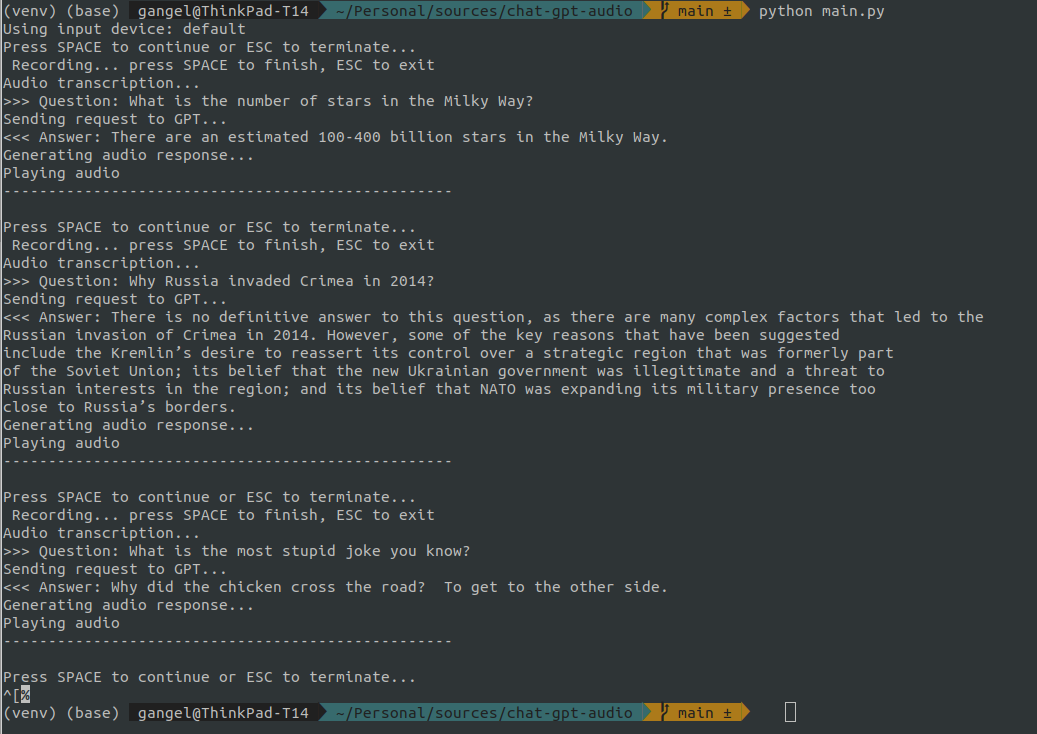The Chat GPT Audio is a Python project that enables users to communicate with OpenAI's GPT-3 natural language processing model through audio input and output. This project is open source and available on GitHub. It uses OpenAI API and audio TTS (text-to-speech) technologies to facilitate the interaction between users and the GPT-3 model.
The most surprising fact about this project is that it was created with the huge support of Chat GPT answers (including a significant part of this README :D. I sent ~35 requests to Chat GPT for help generating different parts of the program, asking for a help to solve some issues I found during development.
The project offers the following features:
- Audio input and output: Users can speak to the GPT-3 model using a microphone, and the responses from the model are converted into speech using a TTS engine.
- OpenAI API integration: The project uses the OpenAI API to connect to the GPT-3 model and retrieve responses.
- Transcription of the audio: OpenAI whisper-1 model
- Text-to-speech used in the project is Open Text to Speech Server
To install the project, follow these steps:
- Clone the project from GitHub to your local machine.
- Install the required dependencies by running
pip install -r requirements.txt. - Run Open TTS Server via docker, e.g.
docker run -it -p 5500:5500 synesthesiam/opentts:en - Configure Open API key in environment variable
OPENAI_API_KEY
- Run the project using the command
python main.py. - Default input for microphone is selected.
- Activate recording using SPACE.
- Speak into your microphone and press space to finish.
- Listen to the response from the model through your speakers or headphones.
- Press SPACE to continue or ESC to leave the program.
- Program creates and uses temporary
output.wavfile created in your current directory
- Chat GPT :D
